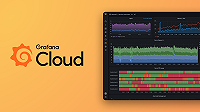Caution
Grafana Alloy is the new name for our distribution of the OTel collector. Grafana Agent has been deprecated and is in Long-Term Support (LTS) through October 31, 2025. Grafana Agent will reach an End-of-Life (EOL) on November 1, 2025. Read more about why we recommend migrating to Grafana Alloy.
Important: This documentation is about an older version. It's relevant only to the release noted, many of the features and functions have been updated or replaced. Please view the current version.
loki.source.heroku
loki.source.heroku listens for Heroku messages over TCP connections
and forwards them to other loki.* components.
The component starts a new heroku listener for the given listener
block and fans out incoming entries to the list of receivers in forward_to.
Before using loki.source.heroku, Heroku should be configured with the URL where the Agent will be listening. Follow the steps in Heroku HTTPS Drain docs for using the Heroku CLI with a command like the following:
heroku drains:add [http|https]://HOSTNAME:PORT/heroku/api/v1/drain -a HEROKU_APP_NAMEMultiple loki.source.heroku components can be specified by giving them
different labels.
Usage
loki.source.heroku "LABEL" {
listener {
address = "LISTEN_ADDRESS"
port = PORT
}
forward_to = RECEIVER_LIST
}Arguments
loki.source.heroku supports the following arguments:
| Name | Type | Description | Default | Required |
|---|---|---|---|---|
use_incoming_timestamp | bool | Whether or not to use the timestamp received from Heroku. | false | no |
labels | map(string) | The labels to associate with each received Heroku record. | {} | no |
forward_to | list(LogsReceiver) | List of receivers to send log entries to. | yes | |
relabel_rules | RelabelRules | Relabeling rules to apply on log entries. | {} | no |
The relabel_rules field can make use of the rules export value from a
loki.relabel component to apply one or more relabeling rules to log entries
before they’re forwarded to the list of receivers in forward_to.
Blocks
The following blocks are supported inside the definition of loki.source.heroku:
| Hierarchy | Name | Description | Required |
|---|---|---|---|
| listener | listener | Configures a listener for Heroku messages. | yes |
listener block
The listener block defines the listen address and port where the listener
expects Heroku messages to be sent to.
| Name | Type | Description | Default | Required |
|---|---|---|---|---|
address | string | The <host> address to listen to for heroku messages. | 0.0.0.0 | no |
port | int | The <port> to listen to for heroku messages. | yes |
Labels
The labels map is applied to every message that the component reads.
The following internal labels all prefixed with __ are available but will be discarded if not relabeled:
__heroku_drain_host__heroku_drain_app__heroku_drain_proc__heroku_drain_log_id
All url query params will be translated to __heroku_drain_param_<name>
If the X-Scope-OrgID header is set it will be translated to __tenant_id__
Exported fields
loki.source.heroku does not export any fields.
Component health
loki.source.heroku is only reported as unhealthy if given an invalid
configuration.
Debug information
loki.source.heroku exposes some debug information per Heroku listener:
- Whether the listener is currently running.
- The listen address.
Debug metrics
loki_source_heroku_drain_entries_total(counter): Number of successful entries received by the Heroku target.loki_source_heroku_drain_parsing_errors_total(counter): Number of parsing errors while receiving Heroku messages.
Example
This example listens for Heroku messages over TCP in the specified port and forwards them to a loki.write component using the Heroku timestamp.
loki.source.heroku "local" {
listener {
address = "0.0.0.0"
port = 8080
}
use_incoming_timestamp = true
labels = {component = "loki.source.heroku"}
forward_to = [loki.write.local.receiver]
}
loki.write "local" {
endpoint {
url = "loki:3100/api/v1/push"
}
}


